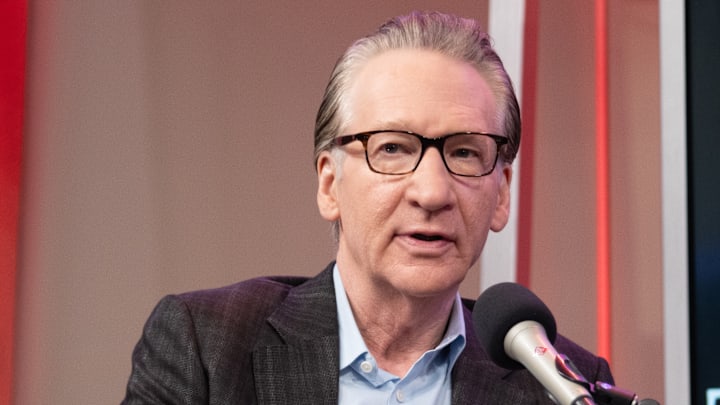Bill Maher committed Friday evening’s “New Rule” segment on Real Time with Bill Maher to commentary on socialism, to predictably disastrous effect.
One can respect Maher for his longtime willingness to critique his own side (liberals and everyday Democrats that is, not socialists), as this is what it means to be an independent thinker. A valuable trait, even if one dislikes the centrist or center-left position from whence it comes. But Maher’s views, with alarming frequency, lack nuance, and seem to ignore rather basic facts, indistinguishable from poor rightwing arguments. This is most true when the subject at hand is socialism (the Israel-Palestine conflict being a close second).
Young people’s interest in socialism may be understandable due to harsh economic realities in the United States, Maher said in his “Flirting with Socialism” piece, but “socialism, to put it simply, just doesn’t work and has never worked.” He compared capitalist, democratic South Korea to communist, totalitarian North Korea, and spoke of how Poland has thrived since escaping the yoke of the Soviet Union while Venezuela fell into poverty under socialist Hugo Chavez. Criticism of Bernie Sanders, Zohran Mamdani, the Democratic Socialists of America, and so on followed.
Bill Maher has little interest in making distinctions, an inconvenient activity inherent to honest debate. The socialism of the Soviet Union, North Korea, and elsewhere is defined by government ownership of all workplaces and government planning of all economic output, or as close to “all” as possible. It is indeed the case, and predictable, that establishing government-as-the-only-employer, the end to all business competition, production quotas for all goods and services, and so on required authoritarian methods, risked economic disaster, and left shocking numbers of innocent people in graves.
But this societal structure is not what Mamdani or Sanders want. Nor is it what Alexandria Ocasio-Cortez or the DSA desire. While this economic set-up was called socialist, and of course still is by people like Maher, if you were to speak with anyone advocating such things today she would likely call herself a communist. Those calling themselves socialists today want the government to cover healthcare and higher education costs for all, while offering public sector jobs or guaranteed income to fight poverty; socialists also favor direct democracy, and want workers to own their workplaces, not the government or capitalist bosses. Such things already exist in rich democracies around the world, to greater or lesser degrees.
One can oppose such policies just like one opposes government ownership and control of all businesses. But it is intellectually dishonest to pretend they are the same, or to pretend one leads to the other (as if the universal healthcare offered in France is somehow going to lead to communism, dictatorship, and gulags). Maher, like many others before him, tried to frame democratic socialists as risking tyranny and ruin by falsely implying they seek the same policies as the Soviet Union. Per usual, Maher either did not know better or did not care.

New Rule: Late night hosts must stop offering bad arguments and stick with the good ones
Maher briefly turned his attention to universal healthcare (you know, what socialists actually want — he could not turn to anything more sinister). He used tiny Vermont’s abandoned plans for costly socialized medicine to cast doubt on the feasibility of universal healthcare for the whole United States. As if other nations, large and small, have not had such programs for a long time.
Then things really went off the rails. “I don’t think people realize we already have a lot of socialism. Social Security, Medicare, Medicaid, unemployment insurance, food stamps...” Scrrr — one can practically hear the record scratch at this bizarre turn of events. Here Maher got closer to what socialism is, but this line is often used by socialists seeking converts: see, socialism is nothing to be afraid of, we already take it for granted. These programs, Maher opined, are “appropriate to soften the edges of capitalism.” But other policies go too far (here the host rather randomly cited DSA views on immigration).
By listing such programs and declaring “all that is socialism,” Maher invited, but appeared not to notice, the obvious response. If these programs are good, if the socialism already established in the United States is good, might there also be positives to taking it all further? Why not soften the edges of capitalism even more, through healthcare or jobs for all, to provide prosperity to the young people (and people of all ages) Maher admitted are suffering under capitalism? What justifies drawing the line at some socialism (which helps some) but not more socialism (which helps more)? His think piece was largely confused and ineffective.
In fairness, however, one of Maher’s main points had merit. He opened and closed with the argument that the Democratic Party will win more elections by moving to the center. Whether socialism wins elections is a different question from whether socialism is good or what it is. “We have the evidence,” Maher declared. “In 2024, 13 Democrats won in districts Trump also won — all moderates.”
While the debate over whether the party should moderate or lean into bold leftwing policies to best attract voters is hardly settled and will continue, there is evidence that moderation is the key to beating Republicans in tight races. While socialism may be of interest to many Americans these days, most are likely too far from the political extremes, or too misinformed thanks to problematic programs like Real Time, for it to be a winning strategy.
